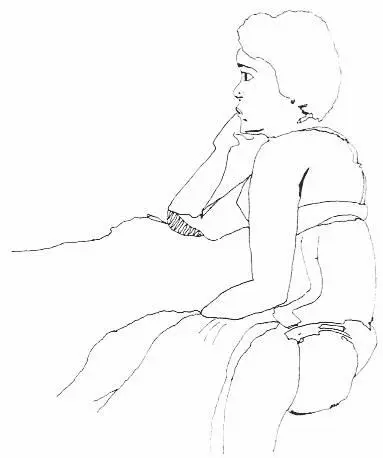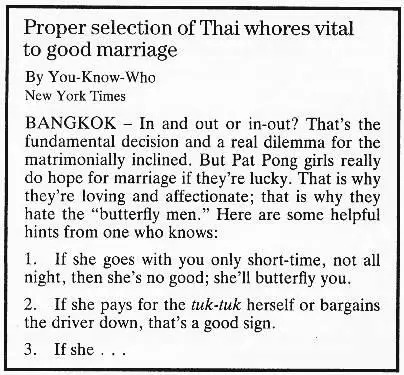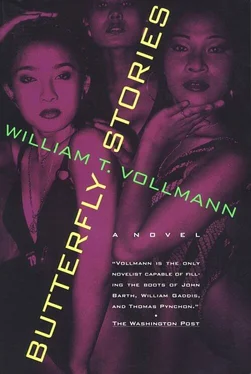William Vollmann - Butterfly Stories
Здесь есть возможность читать онлайн «William Vollmann - Butterfly Stories» весь текст электронной книги совершенно бесплатно (целиком полную версию без сокращений). В некоторых случаях можно слушать аудио, скачать через торрент в формате fb2 и присутствует краткое содержание. Год выпуска: 1994, ISBN: 1994, Издательство: Grove Press, Жанр: Современная проза, на английском языке. Описание произведения, (предисловие) а так же отзывы посетителей доступны на портале библиотеки ЛибКат.
- Название:Butterfly Stories
- Автор:
- Издательство:Grove Press
- Жанр:
- Год:1994
- ISBN:9780802134004
- Рейтинг книги:5 / 5. Голосов: 1
-
Избранное:Добавить в избранное
- Отзывы:
-
Ваша оценка:
- 100
- 1
- 2
- 3
- 4
- 5
Butterfly Stories: краткое содержание, описание и аннотация
Предлагаем к чтению аннотацию, описание, краткое содержание или предисловие (зависит от того, что написал сам автор книги «Butterfly Stories»). Если вы не нашли необходимую информацию о книге — напишите в комментариях, мы постараемся отыскать её.
Butterfly Stories — читать онлайн бесплатно полную книгу (весь текст) целиком
Ниже представлен текст книги, разбитый по страницам. Система сохранения места последней прочитанной страницы, позволяет с удобством читать онлайн бесплатно книгу «Butterfly Stories», без необходимости каждый раз заново искать на чём Вы остановились. Поставьте закладку, и сможете в любой момент перейти на страницу, на которой закончили чтение.
Интервал:
Закладка:
He reread her letter, as he'd done every day. .
Joy had told the photographer that she had to see someone before she came that night, so she'd be late. - Probably got to make some money, said the photographer. It's not like I've been giving her much. .
She came at four or five in the morning, smiling and swaying. - I drink too much! she giggled.
Are you happy? asked the journalist quietly.
Yes, me very happy, 'cause I drink too much! I bring something for you. Here your clothes; I wash them for you; your shirt not yet; I no iron -
The photographer lay on the bed, his eyes closed.
You angry me?
No, not angry, Joy, just tired.
Look! I got toy monkey! You see? From lady! She like me too much! You go America Friday, I go her Saturday for holiday. No make love! No make love! Only go with her. . You not angry?
Nope, yawned the photographer.
He looked at the monkey on the bed for awhile. Then he flung it to her, or at her; what he was doing was never entirely clear. But surely he was only playing with her. .
She froze in just the same way that Thais jogging in the park freeze into rigid attention when the national anthem comes on the loudspeaker. Then she whirled on him. - Why you do that? You angry me?
No. Just tired.
You no like me?
I like you fine, Joy.
Why you angry me?
After that, the photographer's face hardened. The journalist knew that something bad would happen.
Joy stood by the mirror. She had been about to undress. She fingered the topmost button of her Pat Pong uniform, undoing
it and then doing it up again. Then she began to speak in a rapid monotone:
You no like me? You no like me OK I go home sleep. You no like me? You no like me?
The photographer said nothing. He didn't even open his eyes.
OK you no like me I go. I go now. You no like me. OK.
She began to pack very rapidly. She slipped her sandals back on. She stood waiting for the photographer to say something, and the journalist wanted to call out to her and take her in his arms, only to take her pain away — as if his embrace could do anything; he had to PAY to embrace. . and he wanted the photographer to say to her once more that he loved her (although that probably wasn't true) but he knew that the photographer was not going to say anything, and even if it had, that wouldn't have helped her, and even if the journalist or the photographer or anyone could have smashed the collar of anguish that was strangling her, she'd be choking again tomorrow night; so he lay watching her in silence, saddened to the bottom of his heart, knowing that there was nothing he could or should do, nothing to do, in that long long time when she stood by the doorway waiting, and then she said: OK. I go. - And she waited a little longer. Then she turned out the light, opened the door, and shut it behind her. Now she would be walking toward the stairs; the photographer could still have leaped up and caught her; now she was downstairs; now she'd be walking very very quickly in the rain to find a tuk-tuk. Lying in the darkness, he heard the photographer groan.
In the morning he decided to set out for Joy's to tell her that he was worried about her, and possibly to give her flowers or money. The photographer had her address, written in Thai for the tuk-tuk. He didn't want to tell the photographer where he was going;
the photographer might feel (and rightly) that it was none of his business. He decided to walk. He didn't know exactly where it was but he thought he knew the direction that the tuk'tuks went. It was near a large park, which he was confident he'd find. Soon he was in places he'd never been before.
The fungus between his fingers itched. Thais immaculate in pressed and sweatless shirts eyed him as he trudged and dripped. - Where are you going, butterfly? a man called. - He came to a translation service, and remembered that he had a letter for Vanna with him. - Can you translate from English to Khmer? he said. - No, they laughed. - They always laughed. It was the tenth place he'd tried. He came to an international calling service and asked them if he could call Cambodia. Yes, but he must wait one to two hours to get through. - Anyhow, he didn't know whom to call, how to reach her… He came to a department store and then a vast spacious park with fountains and playing fields; a grand white structure rose in the distance, multiple-roofed like a wat. Probably it was a girls' school. Everywhere he saw girls in white blouses and navy blue skirts. They sat in ones and twos on the edge of a brown pool, their homework on their knees. No, evidently there were boys, too; here came a procession of them in white shirts, navy blue trousers, marching along the outer perimeter of the pool. - Too bad there had to be boys. Now the place was polluted. - He sat for a long time and watched the water.
He arrived at Joy's with his heart in his throat, and knocked, seeing light under the door. At least they weren't sleeping.
Joy? he said. Sawadee-kap.*
Yes, she finally said listlessly.
* Thai greeting.

He went in and said: My friend no angry you. I worried you. You drink too much. No problem. OK?
Pukki's face had lit up when he came in, but now it dimmed. - You no come for me?
I have something for you, Pukki, he said, giving her his last twenty dollars.
For me? Why?
I sorry maybe you have baby.
OK. No problem.
The girls were not their bar selves. They sat sweating and trying to rub away beer headaches. Two Thai boys (whom they vehemently assured him were not their boyfriends, and he thought: Why does it have to be my business? Why can't they
be your boyfriends? We have no claim on you; we're only sick butterflies) were lying on the futon. Soon Pukki began to pay the journalist his due attentions. She sent one of the boys out to get lunch. When he came back she spooned the journalist's food onto the plate for him, just right. She peeled the skin off his chicken. She poured his water while the boys ironed his shirt and bluejeans. She had him lie down, and she sat fanning him. - Time to work. He wrote: Article about a whore who kisses a locket with her (dead?) boyfriend's photo before every sex act. -You good wife, he teased, and she laughed in delight.
You marry me?
Maybe next time.
When you come back?
I don't know, Pukki. I no lie you. Maybe never. I no good. I butterfly. I butterfly you forever.
But later, when she snuggled against him and the boys massaged his legs, calling him Papa-san and bumming ten bhat off him (he gave them twenty), he thought: Well, I could do worse than marry Pukki; Pukki is really a dear, dear girl. .
The photographer came and made up with Joy. The journalist stayed and stayed. - I really should cable something to the newspaper, he thought. Well, maybe I shouldn't; if they know how to get hold of me they may tell me I'm fired. Shit. Maybe I'll write something. What I need's an idea… an idea — by God, I have an idea! That means LIGHT BULBS!

Finally Pukki said to him: OK you go hotel now.
You come with me?
No. I go see friend. You come bar nine o'clock, say goodbye me. I buy you beer from money you give me.
OK.
But at nine o'clock, rolling into Pat Pong on a tuk-tuk with the photographer, who should he see but Noi, the short girl he'd bought all those drinks for and hadn't seen since, and Noi ran up and grabbed his hand, crying: I wait you, I wait you — every day I wait you!
Читать дальшеИнтервал:
Закладка:
Похожие книги на «Butterfly Stories»
Представляем Вашему вниманию похожие книги на «Butterfly Stories» списком для выбора. Мы отобрали схожую по названию и смыслу литературу в надежде предоставить читателям больше вариантов отыскать новые, интересные, ещё непрочитанные произведения.
Обсуждение, отзывы о книге «Butterfly Stories» и просто собственные мнения читателей. Оставьте ваши комментарии, напишите, что Вы думаете о произведении, его смысле или главных героях. Укажите что конкретно понравилось, а что нет, и почему Вы так считаете.












